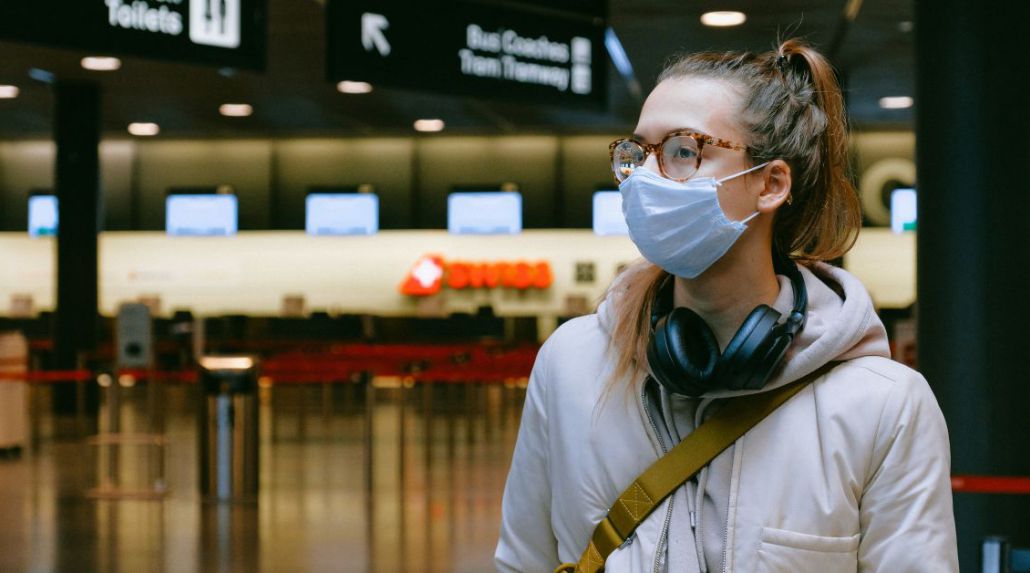

What to Expect in the New World of Travel?
Almost every aspect of our world has changed in response to COVID and travel is no exception. As many people have been primarily housebound for the better part of the past 3 months, there is a pent up desire for travel - both business and personal. However, the uncertainly of the travel experience is causing hesitation amongst many potential travelers. Our experts will examine various aspects of the new travel environment.
Masks, Temperature & Health Checks
During the airline check-in process - whether online, kiosk or at a counter - you should expect to be asked a series of health questions as a form of self-assessment. These generally cover having symptoms of COVID-19 or having been in contact with anyone having tested positive.
While the US government has not set a standard for wearing masks during flight, it is nearly universally required. Initially, airlines started with recommending masks and then began to require them, but with little enforcement. Most recently airlines have begun enforcement while ensuring that flight crews would not be put into positions of conflict. Generally this takes the form of a series of requests or warnings after which the airline will place the passenger on an internal 'no-fly' list if they don't comply. Many airports do require masks throughout the terminals and buildings.
In most other areas of the travel experience such as hotel lobbies and car rental facilities, masks are strongly encouraged but not required by customers. Generally the staff at these locations will be wearing masks.
Finally, expect to have your temperature checked using a handheld thermometer pointed at your forehead.
Touchless and Spaced Out
Use of self check-in, mobile boarding passes and other similar tools has grown tremendously in recent years - and the timing couldn't be better. Passengers are all encouraged to check-in using their own devices (mobile or print boarding passes at home), but will also be handling and scanning their own IDs and boarding passes at TSA and at the gate, all in an effort to reduce touchpoints. Where travelers may be face to face with staff, such at a check-in counter, you can expect to see the plexiglass screens that are becoming commonplace in many aspects of life.
While in line (check-in, security, boarding, jet bridge) travelers will be expected to space 6 feet apart. For now, while travel volumes are low, this can be accommodated within existing airport or other travel infrastructure. However, as volumes pick up, the length of lines could become a challenge.
Each airline has a very different approach to ensuring distancing onboard. Leading the pack is Delta which is firmly limiting capacity at 50% in First and 60% in the Main Cabin. United is notifying customers if a flight is expected to be over 70% capacity and offering a free change, while some airlines are making no accommodations or limitations at all.
Regardless of the capacity of the aircraft, most airlines have temporarily changed their boarding process to start from the rear of the plane, with the idea that it will reduce the number of people who pass by each other. For some, this includes business class that will now board last; while others will continue to allow business class to board at any time.
Clean, Really Clean
Every major travel supplier has announced a series of cleaning standards in response to COVID. While reading airline or hotel cleaning standards may not seem very enticing, there are differences worth noting. While most airlines are using electrostatic spraying or fogging machines to disinfect aircraft, they don't do it at the same frequency. Delta has committed to spraying after every flight, while airlines like Spirit and Frontier both don't indicate the frequency (its believed to be nightly).
Even the airports have stepped up their game. All of our recent travel reports are indicating airports that are cleaner than ever before!
Adjusted Services
Many providers through the travel journey are reducing or adjusting services to reduce contact and touchpoints. Many hotels have closed their gyms and pools, or are limiting access to a smaller number of people and temporarily close them for cleaning. Hotel lobby bars, restaurants and coffee shops may be closed or operate limited hours - sometimes simply in response to limited demand. In place of the breakfast buffet many hotels are now offering grab-and-go meals or extended hours for room service.
In flight, food and drink services will be substantially different. Delta is offering prebagged kits as you board the aircraft, which include snacks, a water bottle and Purell sanitizer. Even though they are clearing the cabin to such a great degree, airlines know that passengers want that extra level of personal comfort that you can get from wiping down the surfaces yourself
These changes may not make for the most attractive travel experience, but we know that people are increasingly eager to travel again. These steps and more will allow us to once again explore and do business across the country and across the world - safely.
